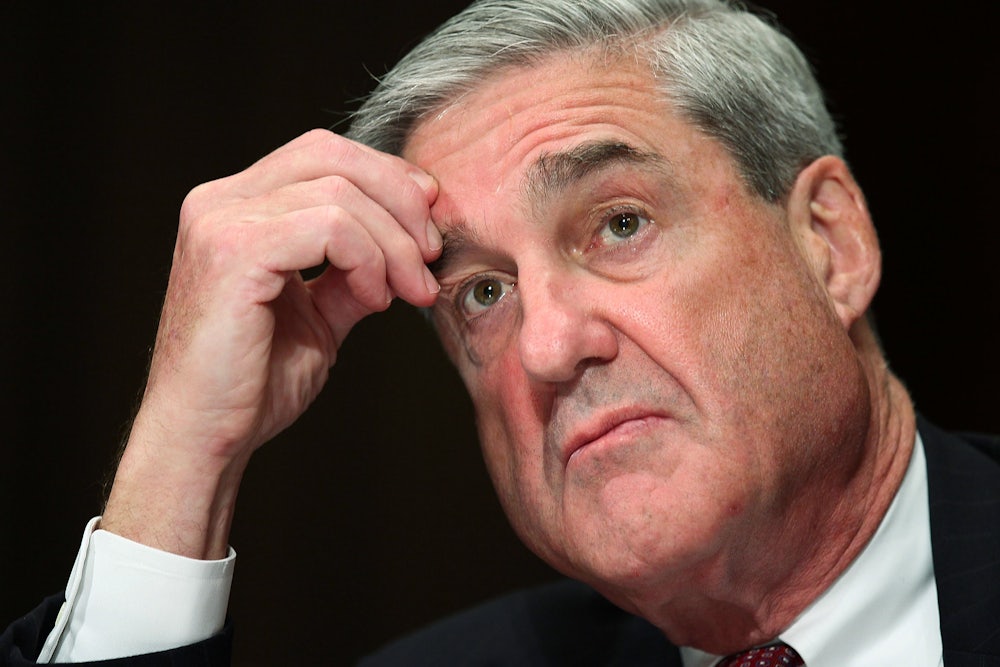The New York Times reported tonight that the president ordered the firing of special counsel Robert Mueller last summer, only to back down after White House Counsel Don McGahn refused to pass along the order to Justice Department and threatened to resign in protest. Trump also weighed removing Deputy Attorney General Rod Rosenstein from his post and installing Rachel Brand, the department’s third-in-command, to oversee Mueller.
Even by the Russia investigation’s standards, Thursday night’s revelation was a bombshell. It evoked the nadir of the Watergate crisis, when Richard Nixon ordered Attorney General Elliot Richardson to fire Watergate prosecutor Archibald Cox. Richardson and his deputy William Ruckelshaus resigned rather than carry out the order, but Solicitor General Robert Bork eventually complied. The episode helped turn Congress and the American public against Nixon and accelerated the end of his presidency.
By not ousting Mueller, then, Trump avoided perhaps the worst political crisis faced by any president since the 1970s. His rationale, according to the Times, centered around three exceptionally weak claims that Mueller has a conflict of interest:
First, he claimed that a dispute years ago over fees at Trump National Golf Club in Sterling, Va., had prompted Mr. Mueller, the F.B.I. director at the time, to resign his membership. The president also said Mr. Mueller could not be impartial because he had most recently worked for the law firm that previously represented the president’s son-in-law, Jared Kushner. Finally, the president said, Mr. Mueller had been interviewed to return as the F.B.I. director the day before he was appointed special counsel in May.
Mueller reportedly learned about the attempted effort to remove him while interviewing White House staffers last year. Its public disclosure comes as he and Trump’s lawyers negotiate a formal interview with the president, which could occur in the next few weeks. Many of Mueller’s questions are expected to center on whether Trump obstructed justice by firing former FBI Director James Comey last year—a question that will be even harder for the president to explain away after tonight’s news.
